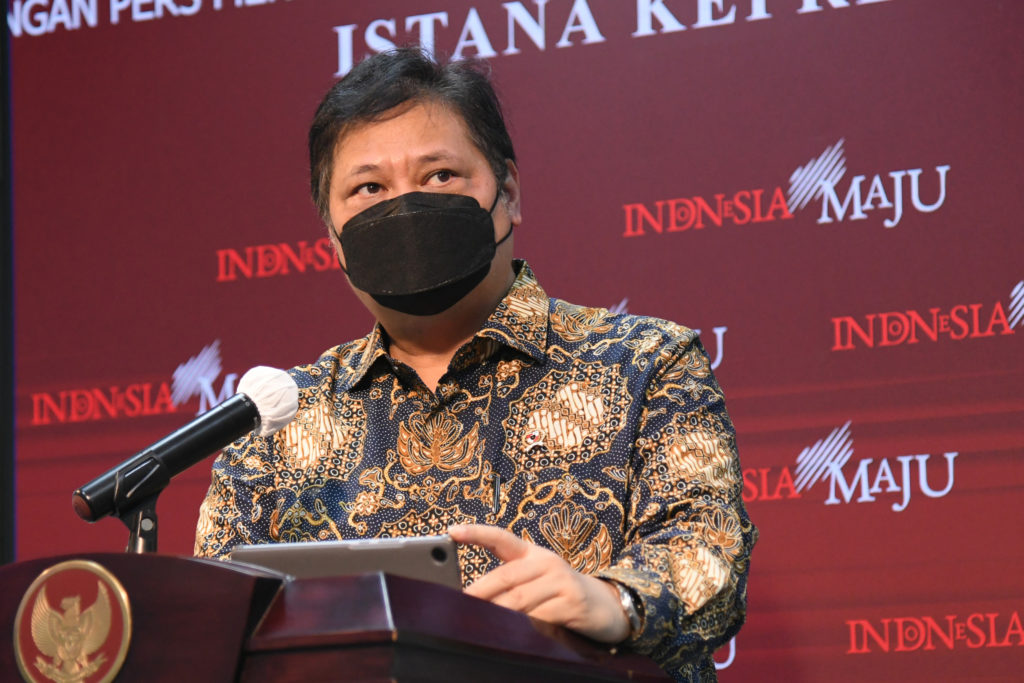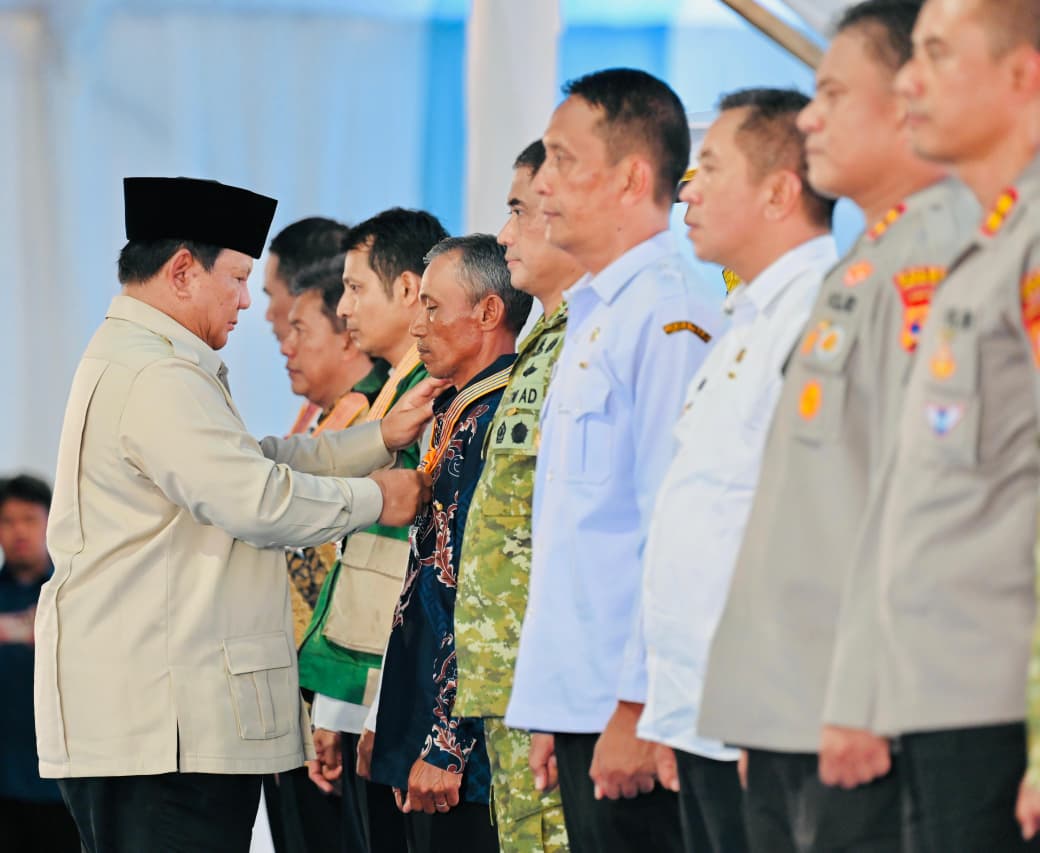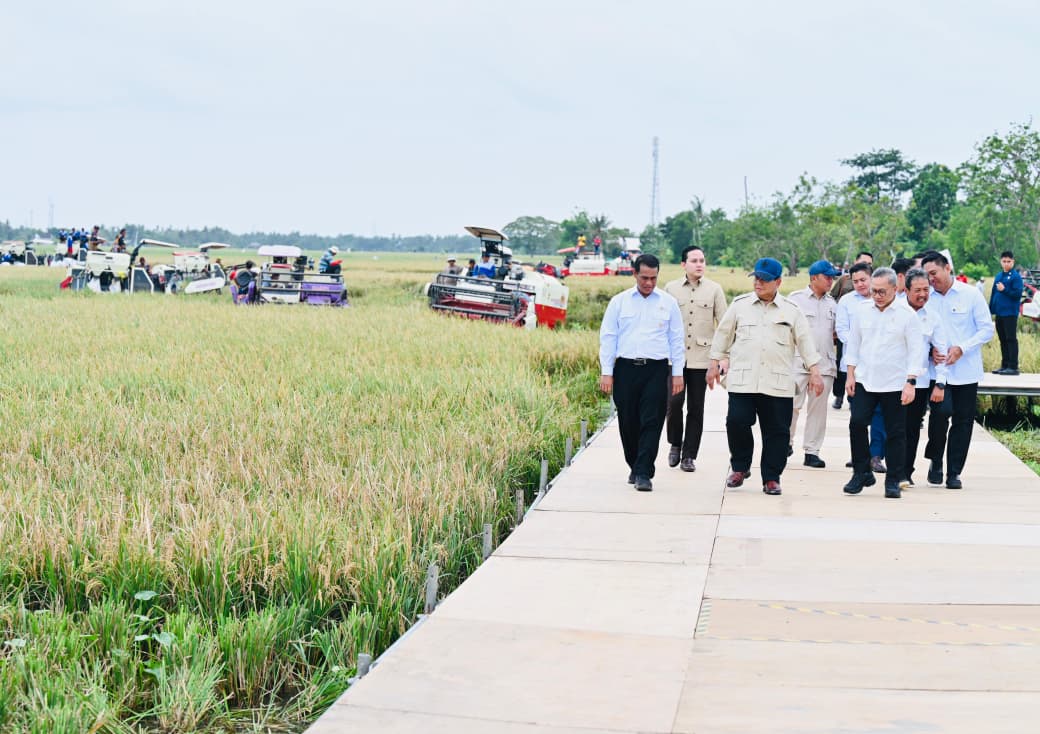Gov’t to Finalize Drafts of Job Creation Law Implementing Regulations

Coordinating Minister for Economic Affairs Airlangga Hartarto (Photo by: PR Documentation).
In a bid to garner all inputs, suggestions and aspirations from the public as well as stakeholders in drafting Implementing Regulations for Job Creation Law, the Government has provided four main channels.
The four channels are the official portal for Job Creation Law, Tim Serap Aspirasi (a team set up to accommodate aspirations on Job Creation Law/TSA), Serap Aspirasi events, and through official letters to Coordinating Ministry for Economic Affairs and related ministries/institutions.
As of 25 January 2021, the inputs and aspirations received through these channels were as follows:
- Through official portal: 112 web-form inputs, 48 inputs via email, and 88 million hits;
- Through Serap Aspirasievents heldoffline/face-to-face in 15 regions across the country: 38 input files;
- Through the TSA team: 227 input files; and
- Through official letters to Coordinating Ministry for Economic Affairs and related ministries/institutions: 72 input files.
The Government also had a discussion with all stakeholders, academics and legal practitioners, experts in various fields related to the Job Creation Law, as well as national figures to accommodate various public aspirations for the Implementing Regulations.
“All inputs and suggestions have been followed up by related ministries and institutions which are responsible for technical matters, along with Technical Teams from Coordinating Ministry for Economic Affairs, Ministry of Law and Human Rights, Ministry of State Secretariat, and Cabinet Secretariat in the harmonization process,” Airlangga said.
The Implementing Regulations for Job Creation Law consist of 49 Government Regulation Drafts (RPP) and 5 Presidential Regulation Drafts (RPerpres). Two Government Regulations (PP 73/2020 and PP 74/2020PP) have been enacted, while 38 RPPs and four RPerpres have been completed and submitted by Coordinating Minister for Economic Affairs to the President for approval and stipulation. The discussion of nine RPP and one RPerpres has completed and now these regulations are in the process of harmonization and examination of substantial matters.
The Government will continue to conduct evaluations in accordance with national needs so the promulgated Government and Presidential Regulations can adapt to various changes and rapid developments that occur in the country, Airlangga said.
The Implementing Regulations further reinforce the main purpose of the enactment of Job Creation Law, namely regulatory reform and debureaucratization in order to create more efficient, accessible, and responsive government services by implementing norms, standards, procedures and criteria (NSPK).
In addition, the Job Creation Law also aims to create jobs, to simplify business licensing and to empower micro and small businesses so the public will open new businesses, as well as at the same time prevent and eradicate corruption through an integrated electronic system. (Coordinating Ministry for the Economy PR /UN) (GWH/MMB)







